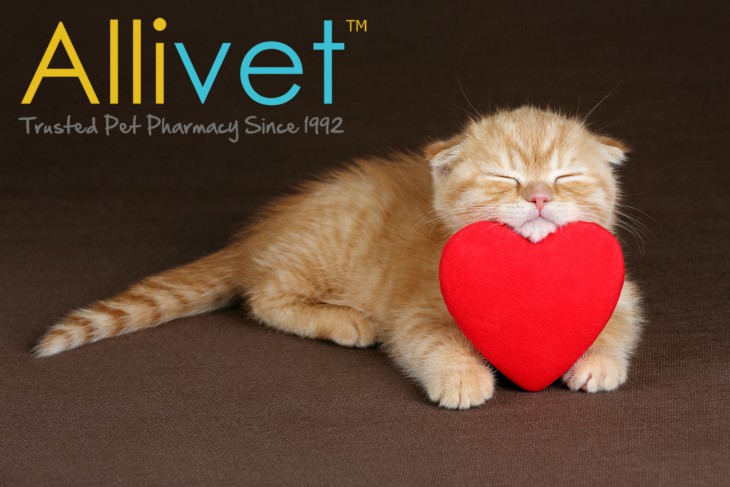Did you know that cats can also suffer from heartworm disease?
The reach of parasitic heartworms extends far beyond canines, infecting a whole gamut of species. The potentially lethal threat of heartworm disease affects not only dogs, but 30 other species including ferrets, wolves, coyotes, foxes, sea lions, as well as our beloved cats.
Heartworm disease has been diagnosed in 50 states, but what exactly are heartworms? And what threat do they pose to our feline friends?
Heartworm disease is a potentially fatal disease in cats infecting pets in the United States as well as other parts of the world. It is caused by foot long parasitic worms (Dirofilaria immitis) that live in your cats’ blood vessels near the heart and lungs feasting on the nutrients within their bloodstream eventually causing severe lung disease, heart failure, and damage to other organs. Cats are an atypical host for heartworms meaning most worms will not survive to the adult stage. When adult heartworms do emerge there are usually just one to three worms and most cats affected by heartworms will not have any adult worms. Due to this, heartworm disease usually goes undiagnosed in cats but be warned that even immature worms can cause serious damage; a condition known as heartworm associated respiratory disease (HARD).
How is heartworm disease transmitted? Where does it come from?
Mosquitoes are the only known vector for transmitting heartworm, a repulsive parasite from a foul insect. Adult heartworms living in an infected animal produce microfilaria (baby worms) that circulates in your animal’s bloodstream. When a mosquito bites the infected animal it picks up these baby worms, which develop into an “infective stage” larvae over 10 to 14 days. The next time this mosquito bites another dog or cat or any other susceptible animal they will become infected by the larvae. After that, it takes about 6 months for the larvae to mature into adult heartworms. Once mature, these heartworms can live for up to 2 to 3 years in your cat. It’s a scary thought, the idea of your cat being infected by heartworms.
What are the signs your cat may have heartworm disease? And what is the outlook?
The symptoms of heartworm disease can be quite dramatic, these symptoms include coughing, periodic vomiting, diarrhea, fainting, lack of appetite, difficulty breathing and weight loss. Occasionally an affected cat will experience fainting and seizures as well as difficult walking or suffer from fluid accumulation in the abdomen. Sadly the first sign in some cases is a sudden collapse or sudden death. The life expectancy for cats with adult heartworms is 1.5 years. The only means of protecting your cat is through preventative medicine, there is no treatment for cats infected with heartworm disease.
What can be done to protect your cat from the debilitating effects heartworm disease?
Although cats cannot be treated once they are infected, heartworm disease can be prevented with the appropriate medication. Allivet carries three feline heartworm prevention medicines: Heartgard Cat, Revolution for Cats, Advantage Multi for Cats. Heartgard Cat is a chewable tablet that prevents feline heartworm disease, as well as roundworms and hookworms. Revolution for cats is a once a month topical solution that stops heartworms and fleas, roundworms, hookworms, and earworms. Advantage Multi for Cats is a once a month topical solution used for the prevention of heartworm disease, the killing of fleas, as well as roundworms, whipworms, hookworms, and earworms.
Help protect your cat from heartworm disease and contact your vet today! You can save your kitty and further assist in the eradication of this horrible disease.
Want to learn more about heartworm? Check out our Heartworm Infographic to learn which product is right for your dog.





